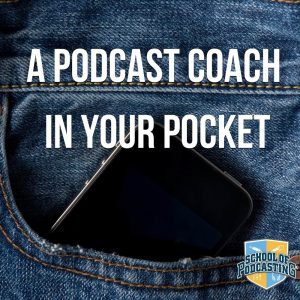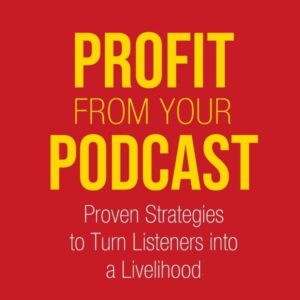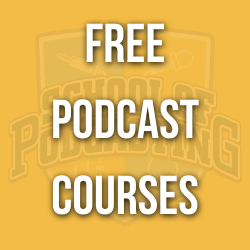
You often hear people talking about “Keeping it real” in podcasting. The art of podcasting is constantly evolving, and one of the most crucial aspects that can make or break a show is the editing process. While many creators aim to “keep it real” and authentic, this often leads to unnecessary filler and boring segments. You should ALWAYS be genuine, but everything authentic will not always resonate.
In the first hour of an episode of the Joe Rogan podcast, I learned amazing(?) tidbits about Julian Lennon. Julian Lennon knows where to get great spaghetti in Monaco.
I'm not going to Monaco anytime soon.
At the one hour and seven-minute mark, Julian explains how his father (former Beatle John Lennon) told him if anything ever happened to him, he would let Julian know he was ok via the symbol of a white feather. He then tells an INSANE White feather story. Why did he make us sit through 67 minutes of “meh” content?
Lose the Boring Parts
I believe that by focusing on the essence of the conversation and removing distractions, podcasters can enhance the listening experience for their audience. Editing isn’t about compromising authenticity—it’s about refining the content to ensure every minute is engaging and valuable. The best authors and filmmakers rely on editing to perfect their final works; podcasters should embrace the process to deliver their best content. By considering the audience's needs and making thoughtful editing decisions, you can take control of your content and produce a polished show that truly resonates.
Always Deliver Value
 When it comes to the mechanics of editing, I emphasize the balance between authenticity and conciseness. Longer podcasts aren’t inherently better—what matters is keeping your audience engaged. I challenge the notion that more content automatically means more value, pointing out that even Joe Rogan’s long-form interviews, while captivating, often contain stretches that could benefit from tighter editing. The goal isn’t to copy successful podcasters but to understand what truly resonates with your own audience. By analyzing listener behaviors and feedback, you can make smarter editing choices that enhance engagement and respect your audience’s time.
When it comes to the mechanics of editing, I emphasize the balance between authenticity and conciseness. Longer podcasts aren’t inherently better—what matters is keeping your audience engaged. I challenge the notion that more content automatically means more value, pointing out that even Joe Rogan’s long-form interviews, while captivating, often contain stretches that could benefit from tighter editing. The goal isn’t to copy successful podcasters but to understand what truly resonates with your own audience. By analyzing listener behaviors and feedback, you can make smarter editing choices that enhance engagement and respect your audience’s time.
It Starts With Knowing Your Audience
In this episode, I also share practical strategies for effective podcast editing. I encourage podcasters to think critically about each segment of their show, asking whether it adds value to the listener. Knowing your target audience is key, as this understanding guides the editing process. I recommend cutting out irrelevant background information for interviews and focusing on the guest’s most insightful responses. I share examples from my own interviews to illustrate how thoughtful editing can transform a good conversation into a great one. By fostering a mindset of continuous improvement and embracing the editing process, you can elevate your content quality and create a show that listeners eagerly anticipate and enjoy.
Keep Your Personal Stories
Again, I'm not saying not to be authentic. You NEED to be genuine. Make sure those personal stories tie into the point you are making.
Common Things I Hear That I Feel Should Be Cut
Nothing makes me fast-forward more than listening to podcasters troubleshoot their technology.
When there is a noticeable volume difference that requires the listener to adjust the volume (really bad with interviews)
Endless chit-chat at the beginning of the show (I'm looking at you, We're Not Wrong) – get to the topic in the title.
What About Ums?
People say “Um.” So there is no need to remove every Um. However, I had a client that had HUNDREDS of ums in a fairly short episode. When HOW you say something distracts from WHAT you are saying, you need to edit. Any time I can make yourself or your guest sound better, why wouldn't you?
Tools Mentioned
Descript – A great tool for editing audio and video at the same time. I use it to remove “ums” from a live show I do, but I would never have it “remove all” fielder words, and listen to the output before posting.
Resound.fm – a Great tool that is designed to remove excess space and filler words.
Hindenburg – a great software for editing, mixing, and exporting audio files.
Riverside – A too for recording remote interviews/podcasts
This content may contain affiliate links, meaning I earn a small commission if you purchase through these links at no additional cost to you. I only recommend products or services I trust and believe will provide value to you. Thank you for your support!
Join the School of Podcasting Worry-Free
Ready to start your podcast but feeling overwhelmed? The School of Podcasting is your step-by-step guide to confidently launching, growing, and monetizing your show. Whether you're a total beginner or looking to refine your craft, you'll get expert coaching, proven strategies, and a supportive community to help you every step of the way. Stop second-guessing and start creating—because your voice matters. Join today and turn your podcasting dreams into reality! Start Your Podcast



